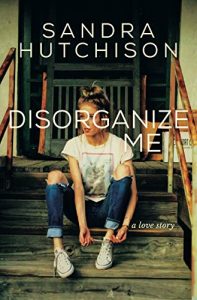Nuance vs. Propaganda
 Most novels have a message of some kind, even it’s just “sometimes you have to break yourself out of a bad place to get to a better one.” We all want the stories we’re reading or watching to have some meaning. That’s why we started telling them to each other in the first place.
Most novels have a message of some kind, even it’s just “sometimes you have to break yourself out of a bad place to get to a better one.” We all want the stories we’re reading or watching to have some meaning. That’s why we started telling them to each other in the first place.
But what if the topic you want to address is divisively political?
One of the risks is that your story could descend into propaganda, fiction designed exclusively to drum up support for your particular political cause, typically by vilifying the other side.
Of course, propaganda has a market, and can be quite effective. Ayn Rand’s libertarian allegories still have legions of fans. Harriet Beecher Stowe succeeded so well with the abolitionist Uncle Tom’s Cabin that it was pirated in shows that toured the country. (Unfortunately, those performances earned her no royalties. Worse, in many cases her story was twisted to please local audiences, which is how Uncle Tom, a heroic character in the book, turned into the insult it is today.)
But let’s assume most of us want our novels to be something that could be read and enjoyed and pondered long after today’s controversies by people who may disagree with us about politics or religion. How can we do that?
Let characters, not politics, drive the story. In Jennifer Klepper’s USA Today-bestselling novel Unbroken Threads, a suburban mom who feels her law degree is getting rusty gets drafted to help a reluctant client, a Syrian refugee, make her way through the asylum process. But Jennifer didn’t start writing the book with a political agenda. Instead, she says, “I started with two characters who came from different backgrounds and I wanted to see what would happen if their paths crossed. The socio-political elements fell into the story in layers as I wrote.”
And she tells me she’s “heard from many readers from both sides of the political spectrum who were happy the book didn’t take a heavy political tone even while having a political issue and backdrop.”
I definitely did have an agenda when I started writing Disorganize Me, but I relied on my characters to drive the story. In the end, I hope, it’s less about American immigration policy, which will inevitably change, than it is about a young couple deciding how much they’re willing to give up for each other.
Avoid the hottest hot buttons. Jennifer references real-life complications like the Muslim ban without ever bringing up the name of the President who imposed it. I set Disorganize Me during Barack Obama’s first term as a way to gain some distance from my own deeply partisan feelings. (That also fit with the facts, believe it or not.) For the same reason, I chose a heroine who’s never bothered to vote or paid much attention to politics.
Heroes need imperfections. Part of this is giving your character some normal flaws for realism’s sake. But when I’m really hoping to inspire people to consider a compassionate response to something, I like to create a character most people would assume is irredeemable just from hearing the bare facts. Thus I gave the hero in Disorganize Me a record, something that would make most people question whether they want him around.
Most of the “bad guys” aren’t, even if it’s only in their own minds. In Disorganize Me I could have made the correctional officers and ICE officials into racist bullies, but that would be hack work. Most people in these situations are just doing difficult jobs the best they know how. Some will even find ways to be kind. If they’re all terrible, you’ve created a black and white world, a sure sign of propaganda. That’s not to say you can’t have some wonderfully vicious villains. But even they need to have a reason in their own mind for being that way.
Similarly, let strong characters who are truly likeable speak for the other side. I have a fondness for writing arch-conservatives with hearts of gold, maybe because I have served many years as a volunteer with a number of them. These are good people, very much products of their environment, whose politics appall me as much as mine appall them. But they do good work to serve the poor, and they’re just as funny, clever, loyal, hardworking, generous, and patriotic as people who think the same way I do.
In your novel, respect your opposition. These characters can step up to help your hero without suddenly reversing their entire political philosophy. Most people are more responsive to the individual in front of them than they are to discarding their own long-held political beliefs. Most of us are also capable of believing two opposing things at the same time without ever noticing the contradiction.
Avoid stereotypes, play off them, or expand beyond them. Jennifer does this well in Unbroken Threads by showing us who’s unexpectedly friendly and respectful at a deliciously fraught Thanksgiving party. That party also serves as an excellent prism of individual points of view and tensions about a subject. Larger social gathering can give you a dramatic way to quickly and plausibly paint a spectrum of beliefs. You might even want to use them to show that your opposition can have some valid points.
Ask your first readers to tell you if you’re ranting. Obviously, this works best if you can find some folks who aren’t as biased about the topic as you are, or are just more aware of the broader market. Let characters think and speak for themselves in a believable way, and let your readers draw their own conclusions. This may sound odd, but I actually consider it a good sign if a few of my readers seem to draw a completely different conclusion than I expected. (I teach English, so this is something I see all the time. Readers construct meaning through their own filters.)
There’s another sometimes incendiary issue not addressed here: Who has the right to write these stories? Jennifer and I are both white women and both conscious that our characters of color are not “own voices.” But that’s a huge discussion in itself, so I’m going to leave that outside the scope of this post.
Have I neglected any other useful ways to avoid writing propaganda? Share them in the comments below!
—
Born and raised in Florida, Sandra Hutchison survived a transplant to a small, snowy New England town during high school and eventually stopped sulking about it, though it’s possible she’s still working it out in her fiction. She’s the author of four novels including The Awful Mess: A Love Story, which was one of five general fiction semifinalists for the 2014 Amazon Breakthrough Novel Award.
Before that, she worked for over seventeen years in publishing as an acquisitions editor, marketing manager, copywriter, and creative director. In addition to writing, Sandra teaches part-time at Hudson Valley Community College, which is near her current home in upstate New York. Learn more at sheerhubris.com, Facebook, or Twitter (but beware, Twitter is where you’ll find her at her most obnoxiously political).
About Disorganize Me: A Love Story
 Kathy dreams of a serene, tidy world in which everything has a place, but she’s less than certain she can make a go of the organizing business her aunt has left her. Diego, the handsome Puerto Rican guy she sometimes employs, dreams of a woman who will love him despite the considerable baggage he’s carrying.
Kathy dreams of a serene, tidy world in which everything has a place, but she’s less than certain she can make a go of the organizing business her aunt has left her. Diego, the handsome Puerto Rican guy she sometimes employs, dreams of a woman who will love him despite the considerable baggage he’s carrying.
Close quarters spark romance, but when they discover neither is exactly who they thought they were, they’ll face brutal decisions about how much they’re willing to give up for each other. This timely and heartfelt novel asks: Who gets to have an American dream?
Category: On Writing































Sandra, this was such a thoughtful and insightful perspective. I love the nuance vs propaganda argument; I do believe nuance is what can help people open their minds to consider another’s point of view. Hmmm. How can we get our politicians to buy Disorganize Me? lol. I’m not a fiction writer (as you know) but if I ever decide to cross that bridge, this is one essay I’ll keep nearby. In the meantime, I’ll share on social media for my fiction writer friends.
Thanks so much, Karen! I think some of this applies to memoir writing, too, or at least to argument writing. If you don’t acknowledge any of the other side’s points of view, your argument is inherently weaker. Or at least that’s the theory. Sometimes, when I see the professional demonizing going on in the public sphere, I wonder if that’s truly the case.